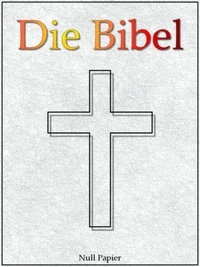In 'The Ninety-five Theses, ' Martin Luther offers a foundational critique of the Catholic Church's practices, particularly concerning the sale of indulgences. Written in 1517, this seminal work employs a rhetorical style that is both polemical and precise, inviting scholarly debate and reflection. Luther's theses, presented in Latin for the academic audience, later transcended into German, sparking widespread discussion across Europe.
This text not only illuminated the moral and theological concerns of the era but also played a crucial role in the Protestant Reformation, challenging centuries of ecclesiastical authority and prompting a reevaluation of personal faith and salvation. Martin Luther, a former monk and theologian, was deeply influenced by his own spiritual struggles and the perceived corruption within the Church. His studies in scripture and the human condition, alongside a growing disillusionment with ecclesiastical abuses, inspired him to articulate these grievances cogently.
Luther's profound commitment to the idea of sola fide, or faith alone, propelled his arguments and underscored the need for reform not just within the Church, but in the spiritual lives of individuals. For readers interested in theology, history, or social justice, 'The Ninety-five Theses' is essential. It offers a penetrating insight into the conflicts that shaped modern Christianity and underscores the importance of questioning authority in the pursuit of truth.
This text remains a powerful reminder of the potential for ideas to incite change and foster new paradigms of faith.
In this enriched edition, we have carefully created added value for your reading experience:
- A succinct Introduction situates the work's timeless appeal and themes.
- The Synopsis outlines the central plot, highlighting key developments without spoiling critical twists.
- A detailed Historical Context immerses you in the era's events and influences that shaped the writing.
- An Author Biography reveals milestones in the author's life, illuminating the personal insights behind the text.
- A thorough Analysis dissects symbols, motifs, and character arcs to unearth underlying meanings.
- Reflection questions prompt you to engage personally with the work's messages, connecting them to modern life.
- Hand-picked Memorable Quotes shine a spotlight on moments of literary brilliance.
- Interactive footnotes clarify unusual references, historical allusions, and archaic phrases for an effortless, more informed read.
In 'The Ninety-five Theses, ' Martin Luther offers a foundational critique of the Catholic Church's practices, particularly concerning the sale of indulgences. Written in 1517, this seminal work employs a rhetorical style that is both polemical and precise, inviting scholarly debate and reflection. Luther's theses, presented in Latin for the academic audience, later transcended into German, sparking widespread discussion across Europe.
This text not only illuminated the moral and theological concerns of the era but also played a crucial role in the Protestant Reformation, challenging centuries of ecclesiastical authority and prompting a reevaluation of personal faith and salvation. Martin Luther, a former monk and theologian, was deeply influenced by his own spiritual struggles and the perceived corruption within the Church. His studies in scripture and the human condition, alongside a growing disillusionment with ecclesiastical abuses, inspired him to articulate these grievances cogently.
Luther's profound commitment to the idea of sola fide, or faith alone, propelled his arguments and underscored the need for reform not just within the Church, but in the spiritual lives of individuals. For readers interested in theology, history, or social justice, 'The Ninety-five Theses' is essential. It offers a penetrating insight into the conflicts that shaped modern Christianity and underscores the importance of questioning authority in the pursuit of truth.
This text remains a powerful reminder of the potential for ideas to incite change and foster new paradigms of faith.
In this enriched edition, we have carefully created added value for your reading experience:
- A succinct Introduction situates the work's timeless appeal and themes.
- The Synopsis outlines the central plot, highlighting key developments without spoiling critical twists.
- A detailed Historical Context immerses you in the era's events and influences that shaped the writing.
- An Author Biography reveals milestones in the author's life, illuminating the personal insights behind the text.
- A thorough Analysis dissects symbols, motifs, and character arcs to unearth underlying meanings.
- Reflection questions prompt you to engage personally with the work's messages, connecting them to modern life.
- Hand-picked Memorable Quotes shine a spotlight on moments of literary brilliance.
- Interactive footnotes clarify unusual references, historical allusions, and archaic phrases for an effortless, more informed read.

 , qui est-ce ?
, qui est-ce ?